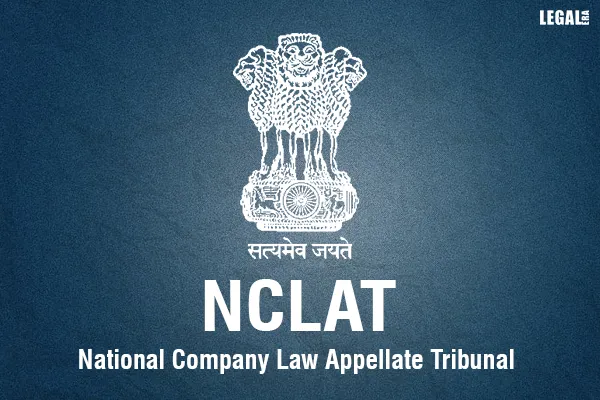NCLAT Chennai: Liquidator Cannot Challenge IBBI Directions Through Section 61 Proceedings
Chennai, has dismissed an appeal filed by the official liquidator of M/s RLS Alloys Pvt. Ltd., challenging an order issued by the National Company Law Tribunal (NCLT) directing an inquiry into the conduct of the liquidator. The bench, comprising Justice Sharad Kumar Sharma (Member Judicial) and Jatindranath Swain (Member Technical), held that the appeal was premature and that the liquidator could not initiate proceedings under Section 61 to contest directions given to the Insolvency and Bankruptcy Board of India (IBBI).;

NCLAT Chennai: Liquidator Cannot Challenge IBBI Directions Through Section 61 Proceedings
The National Company Law Appellate Tribunal (NCLAT), Chennai, has dismissed an appeal filed by the official liquidator of M/s RLS Alloys Pvt. Ltd., challenging an order issued by the National Company Law Tribunal (NCLT) directing an inquiry into the conduct of the liquidator. The bench, comprising Justice Sharad Kumar Sharma (Member Judicial) and Jatindranath Swain (Member Technical), held that the appeal was premature and that the liquidator could not initiate proceedings under Section 61 to contest directions given to the Insolvency and Bankruptcy Board of India (IBBI).
The liquidator, in his capacity as the official representative of the corporate debtor M/s RLS Alloys Pvt. Ltd., filed an appeal against an NCLT judgment in which concerns were raised regarding irregularities in the liquidation process. Specifically, during an e-auction, the liquidator allowed a lower bid to be accepted despite a higher bid being placed. Further issues were noted, such as the initiation of an e-auction without prior notice and the setting of a lower price in the subsequent auction compared to the previous valid bid. Additionally, asuspended bidder was permitted to participate in the auction process. These actions led the NCLT to conclude that there was a lack of transparency in the liquidation process.
In light of the irregularities and lack of transparency, the NCLT directed the IBBI to conduct an inquiry into the conduct of the liquidator. The tribunal emphasized that the inquiry was a fact-finding process and not a punitive action against the liquidator. The tribunal's decision was made to ensure that the liquidation process was conducted fairly and transparently.
Following the NCLT’s order, the liquidator also filed a separate petition before the High Court of Delhi challenging the tribunal's direction. The Delhi High Court ruled that the liquidator must be provided with a copy of the inspection report and given an opportunity to respond to the show cause notice issued by the IBBI. The court further directed that the IBBI should make its decision within four weeks after receiving the liquidator's reply.
In its ruling, the NCLAT held that the liquidator could not file a Section 61 appeal to challenge the directions issued to the IBBI. The tribunal clarified that the inquiry ordered by the NCLT was an internal matter for the IBBI, which was tasked with deciding whether the liquidator's conduct was lawful and whether the allegations against him were justified. The NCLAT also upheld the Delhi High Court's decision, stating that since the inquiry was at an early stage and was intended to be a preliminary fact-finding process, no final decision had been made yet. Therefore, there was no basis for the liquidator to invoke appellate jurisdiction at this stage.
The NCLAT ultimately dismissed the appeal, reinforcing that the inquiry into the liquidator's actions would proceed as a fact-finding exercise under the IBBI's purview.



